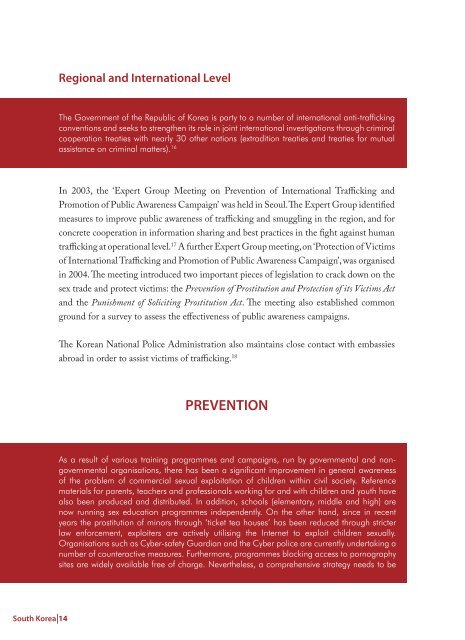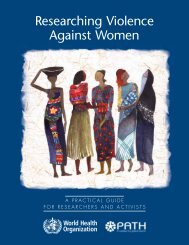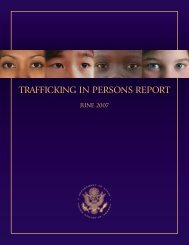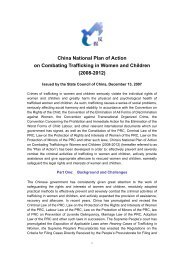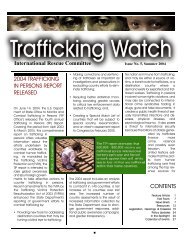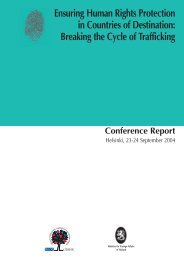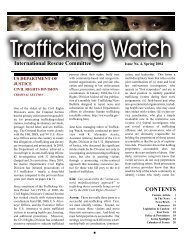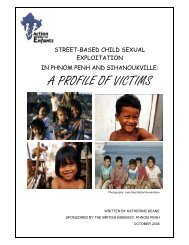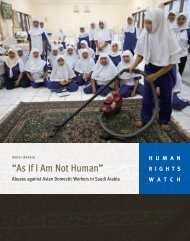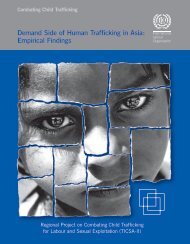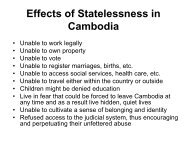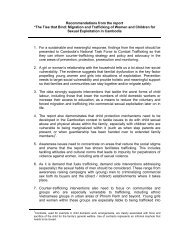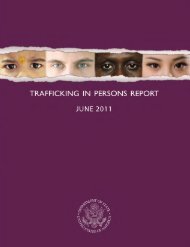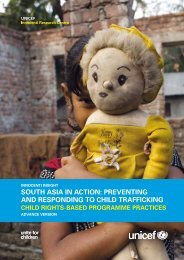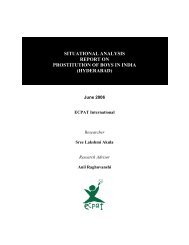South Korea - ECPAT International
South Korea - ECPAT International
South Korea - ECPAT International
You also want an ePaper? Increase the reach of your titles
YUMPU automatically turns print PDFs into web optimized ePapers that Google loves.
Regional and <strong>International</strong> Level<br />
The Government of the Republic of <strong>Korea</strong> is party to a number of international anti-trafficking<br />
conventions and seeks to strengthen its role in joint international investigations through criminal<br />
cooperation treaties with nearly 30 other nations (extradition treaties and treaties for mutual<br />
assistance on criminal matters). 16<br />
In 2003, the ‘Expert Group Meeting on Prevention of <strong>International</strong> Trafficking and<br />
Promotion of Public Awareness Campaign’ was held in Seoul. The Expert Group identified<br />
measures to improve public awareness of trafficking and smuggling in the region, and for<br />
concrete cooperation in information sharing and best practices in the fight against human<br />
trafficking at operational level. 17 A further Expert Group meeting, on ‘Protection of Victims<br />
of <strong>International</strong> Trafficking and Promotion of Public Awareness Campaign’, was organised<br />
in 2004. The meeting introduced two important pieces of legislation to crack down on the<br />
sex trade and protect victims: the Prevention of Prostitution and Protection of its Victims Act<br />
and the Punishment of Soliciting Prostitution Act. The meeting also established common<br />
ground for a survey to assess the effectiveness of public awareness campaigns.<br />
The <strong>Korea</strong>n National Police Administration also maintains close contact with embassies<br />
abroad in order to assist victims of trafficking. 18<br />
PREVENTION<br />
As a result of various training programmes and campaigns, run by governmental and nongovernmental<br />
organisations, there has been a significant improvement in general awareness<br />
of the problem of commercial sexual exploitation of children within civil society. Reference<br />
materials for parents, teachers and professionals working for and with children and youth have<br />
also been produced and distributed. In addition, schools (elementary, middle and high) are<br />
now running sex education programmes independently. On the other hand, since in recent<br />
years the prostitution of minors through ‘ticket tea houses’ has been reduced through stricter<br />
law enforcement, exploiters are actively utilising the Internet to exploit children sexually.<br />
Organisations such as Cyber-safety Guardian and the Cyber police are currently undertaking a<br />
number of counteractive measures. Furthermore, programmes blocking access to pornography<br />
sites are widely available free of charge. Nevertheless, a comprehensive strategy needs to be<br />
<strong>South</strong> <strong>Korea</strong>|14


